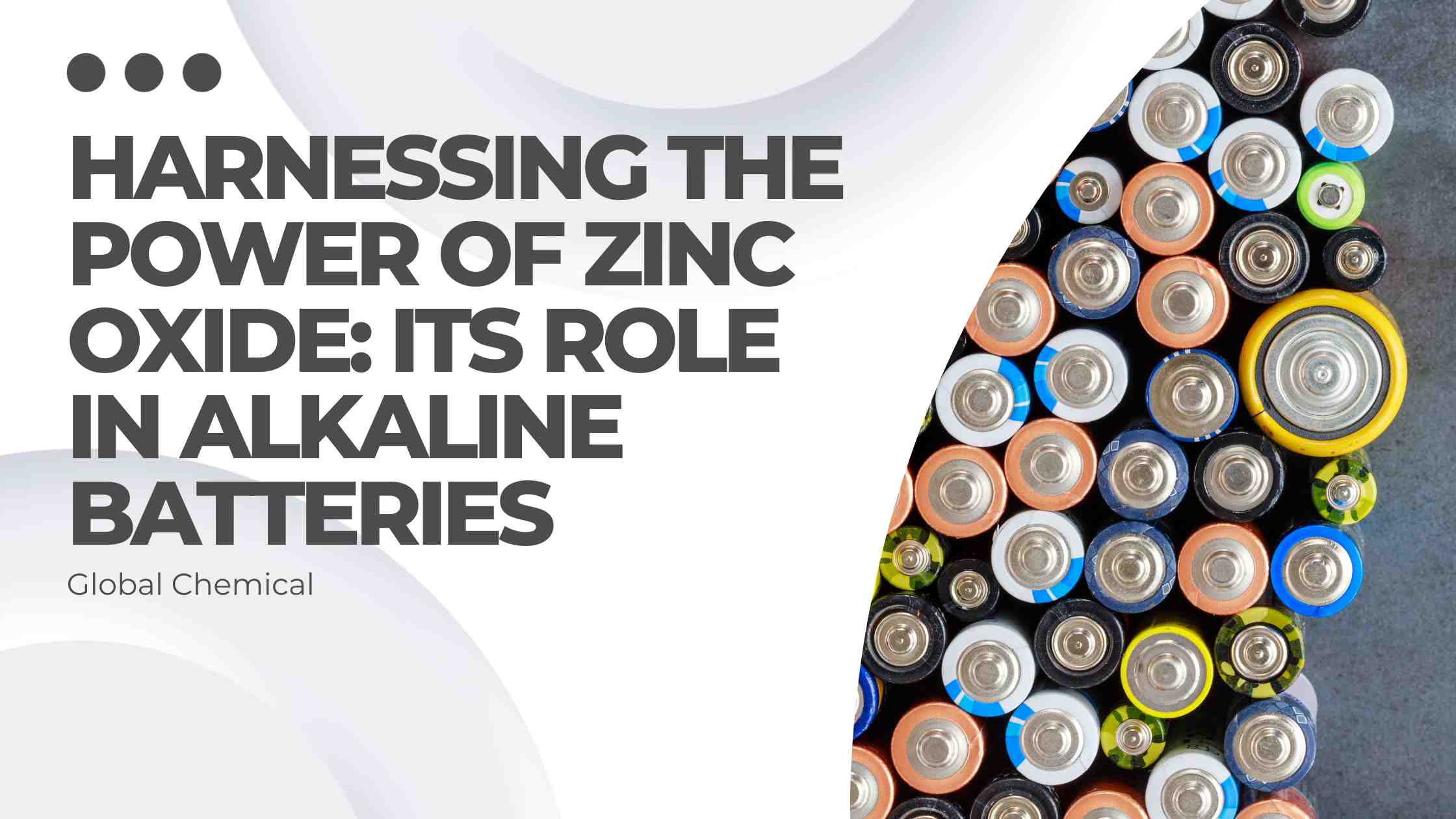
Batteries are ubiquitous in our daily lives, powering everything from our smartphones to our remote controls. They are essential for modern convenience, but have you ever wondered what makes them tick? One crucial component in certain types of batteries, such as alkaline batteries, is zinc oxide. In this blog, we will delve into the fascinating world of batteries and explore how zinc oxide plays a pivotal role as a component of the cathode.
The Basics of Alkaline Batteries
Before we dive into the specifics of zinc oxide’s role, let’s start with a brief overview of alkaline batteries. Alkaline batteries are a type of primary battery, meaning they are not rechargeable. They are known for their long shelf life and are commonly used in devices like flashlights, remote controls, and digital cameras.
The heart of any battery is the cathode, an essential component that facilitates the flow of electrons during the electrochemical reactions that generate electrical energy. In the case of alkaline batteries, zinc oxide takes center stage in the cathode, playing a crucial role in the battery’s overall performance.
Zinc Oxide as a Cathode Component
Zinc oxide’s role in alkaline batteries is twofold. First and foremost, it serves as the cathode’s active material, participating in the chemical reactions that produce electrical energy. During discharge, zinc oxide undergoes a series of chemical reactions that release electrons, creating an electric current that powers your devices. This process is reversible in rechargeable batteries but not in alkaline batteries.
The second role of zinc oxide is to provide a stable platform for these chemical reactions to occur. It acts as a catalyst, facilitating the conversion of chemical energy into electrical energy without degrading the cathode’s structure. This dual function is what makes zinc oxide an ideal choice for alkaline batteries.
Advantages of Using Zinc Oxide
So, why choose zinc oxide as a cathode material in alkaline batteries? There are several compelling reasons:
- Improved Energy Density: Zinc oxide enables alkaline batteries to have a higher energy density, meaning they can store more energy in a given volume. This results in longer-lasting batteries that require fewer replacements.
- Extended Lifespan: Alkaline batteries with zinc oxide cathodes have a longer shelf life compared to some other types of batteries, making them suitable for devices that may sit unused for extended periods.
- Environmental Considerations: Zinc oxide is relatively environmentally friendly compared to certain other battery materials, contributing to reduced environmental impact.
Challenges and Limitations
While zinc oxide offers numerous advantages, it’s not without its challenges and limitations. One significant limitation is that alkaline batteries are not rechargeable, leading to increased waste and environmental concerns. Additionally, the performance of zinc oxide-based batteries can deteriorate at high discharge rates, limiting their suitability for power-hungry devices.
Researchers are actively working on addressing these limitations through innovations in battery design and materials science. Future advancements may lead to more sustainable and high-performance batteries.
Real-World Applications
Alkaline batteries with zinc oxide cathodes are everywhere in our daily lives. From TV remotes to smoke detectors and wireless computer peripherals, these batteries power a wide range of devices that we rely on for convenience and safety.
Future Prospects
As technology continues to advance, the demand for more efficient and sustainable battery solutions grows. Zinc oxide-based batteries are likely to play a significant role in meeting this demand. Emerging technologies, such as zinc-air batteries, hold promise for even more efficient and eco-friendly energy storage options.
In conclusion, zinc oxide’s role in alkaline batteries is a testament to the remarkable advances in materials science and electrochemistry that have made our modern lives possible. As we look to the future, ongoing research and innovation in battery technology, including the use of zinc oxide, will undoubtedly continue to shape our world and the devices we rely on every day.
